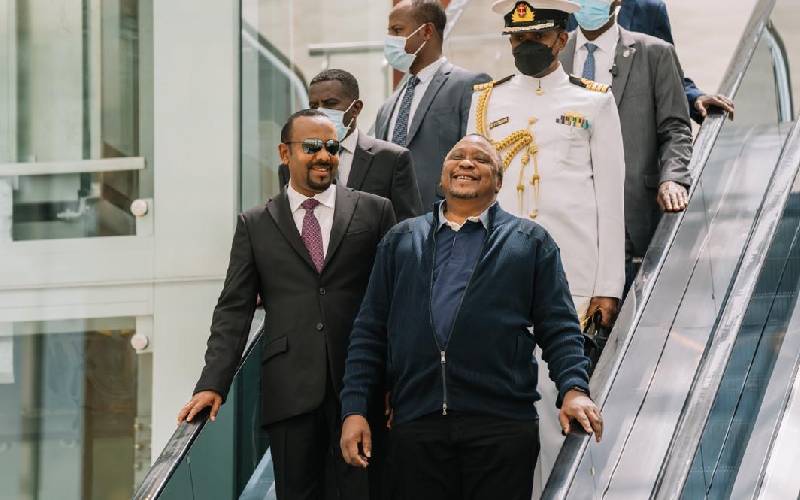×
The Standard e-Paper
Home To Bold Columnists

President Uhuru Kenyatta when he was received by Ethiopia Prime Minister Abiy Ahmed in Addis Ababa on November 14, 2021.
President Uhuru Kenyatta’s tenure as President of Kenya ends in 268 days. Thereafter, he can only remain in office in a caretaker capacity, pending swearing-in of a new president, or the resolution of any challenges that the August 9 election could throw up. The one thing that has occupied Kenya’s fourth president most during his second term has been his succession.